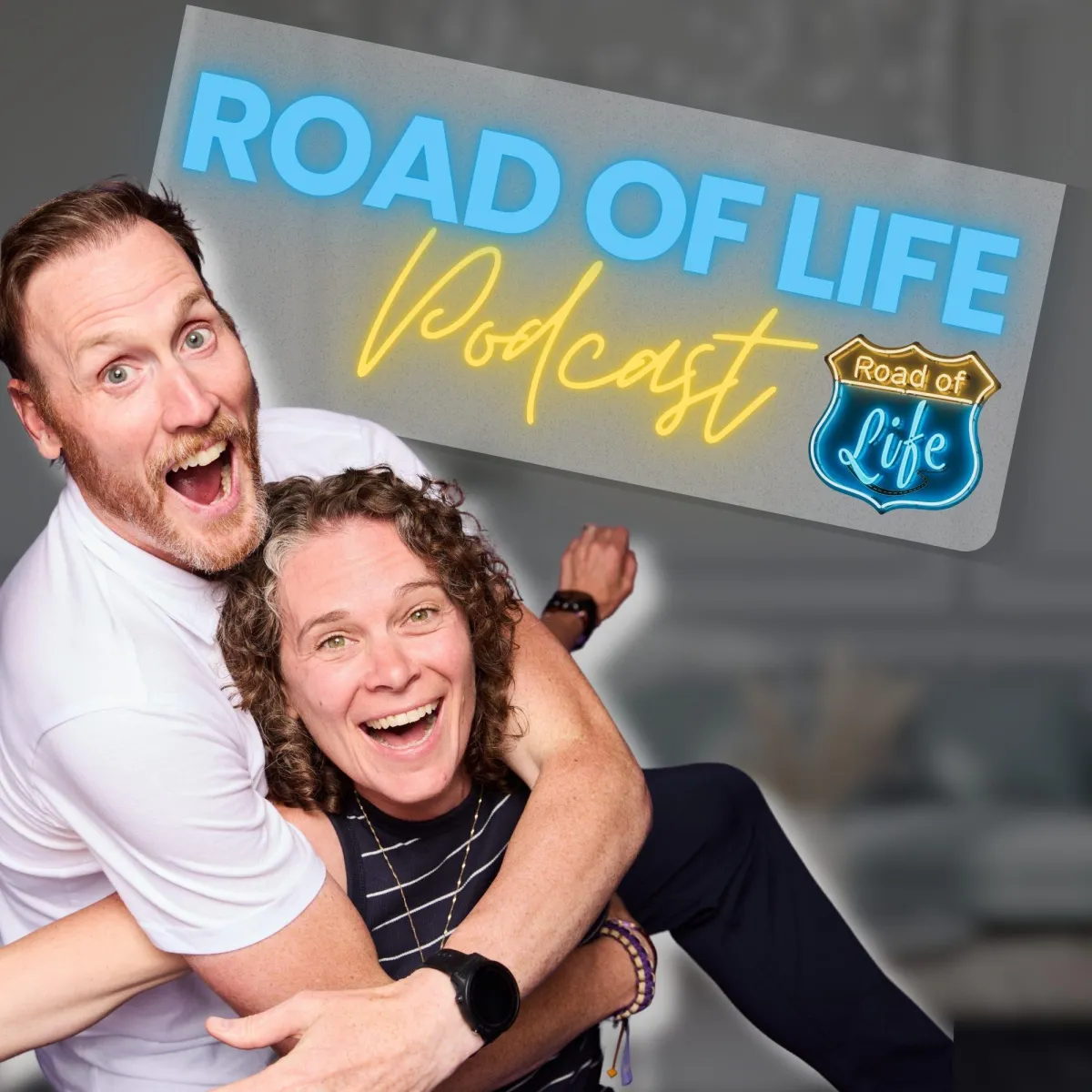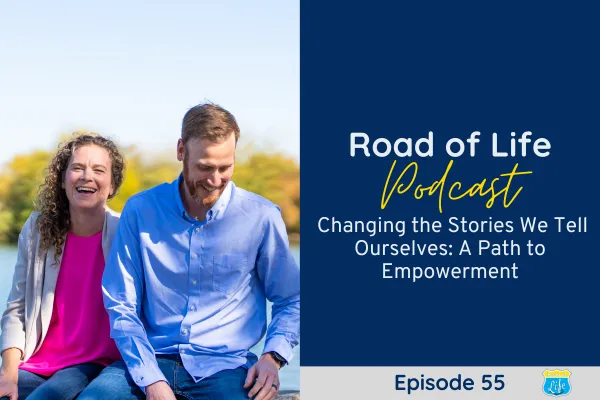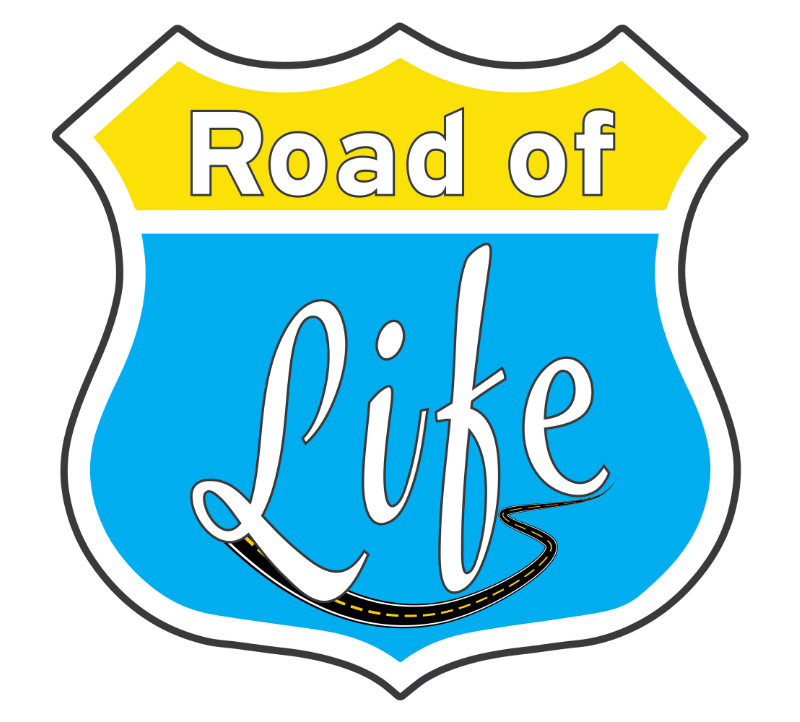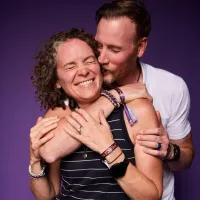
The
Road of Life
Podcast
With Meredith MacKay & Craig Bennett
Listen

55. Changing the Stories We Tell Ourselves
Listen Now
Episode Transcription
Welcome back to another episode of the Road to Life podcast with Meredith and Craig. This week we are talking about the stories we tell ourselves because we all have stories that we have for ourselves, some of them empowering and many of them disempowering. And if we have the choice, why not choose empowering ones?
And so I think that's a little bit of what we're talking about today. Yeah. Human beings. Meaning making machines. Like every experience that we have in our life, we make up a story about it, why it happened, how it happened, whose fault it was, all the elements of a story. And then when in a vacuum, when we don't know those things, we just make them up.
And in fact, even when we do know them, it's only our perspective. So they are all made up. This is actually something that has come up with several clients over the last Couple weeks. And so I thought it was a really important topic that we needed to discuss, at a bigger level so that more people can get support with this because you're right.
Like we make up these stories something happens between two people and one person can walk away from that interaction with a completely different take than the other. And. can tell themselves all the reasons why this other person doesn't like them or rejected them in some way. When in actual fact, the other person walked away with a completely different perspective on that.
And so this person walks away thinking they're less than for some reason. And it's a story that they completely made up and told themselves and then took that out to the world with them. When you do that, you mirror back. What you put out and so now you you're looking for ways to Approve that message to yourself.
Yeah, like you're reinforcing it you're looking for evidence that supports your hypothesis that you're less than right and you see it everywhere Well, cuz you put that lens on now now that you have that story It's like putting on those sunglasses like if you put on Pink lens sunglasses.
Everything you see is pink. When you put on your glasses that have the, I'm not good enough lens on them. Everything you look, you see that it's the lens through which you see the world. It's like when you buy a red Toyota and everywhere you go, you see red Toyotas. It's because it's your reticular activating system.
Like everything, it's on your mind now. And so you're looking for, Red Toyotas everywhere you go. And so when you think I'm not worthy and it's on your mind and you're thinking about that all the time, you're, you're finding evidence that you're not worthy or that supports why you shouldn't be worthy or whatever. Yeah, I, I had that. I for a long time had the belief that I don't make good decisions. So I can look through my life and see evidence of all the reasons I don't make good decisions, all the evidence to support. I don't make good decisions. But when I identify that story and I flip it, I can also now look back on my life and see all of the good decisions that I've made in my life.
And actually some of the decisions that you thought were bad decisions that you were looking at through a different lens, probably now you can look back on those and actually they weren't bad decisions. They were actually really good decisions because they got me here where I'm supposed to be. Just being an example of when I believe something, when I believe a story, I don't make good decisions.
Then all I see is evidence that supports the story that I don't make good decisions. I don't ever find evidence to the contrary. I only see evidence that supports my hypothesis. And it's interesting because we all walk around every day with a head full of all of these stories about us. Some of them serve us, some of them don't, and we'll get into that in a minute.
We make up these stories all the time, all day, every day, basically. But we made up a lot of them when we were kids. Because, especially when we're kids, we don't necessarily understand all the variables at play. We only know that, somebody's not here anymore. Or, you don't understand all the reasons behind a situation that happens.
Or someone that comes or goes from your life. You don't necessarily understand that as a kid. So you make up a story about why that happened because you don't have a reason for it as a kid. So a lot of our limiting beliefs get implanted in our tiny little baby brains when we're kids because we just, we don't have the life experience and the wisdom to understand why things happen.
So we make up a story that it's centers around us because we are the centers of our own universe. That we created this situation somehow as a child. And then we carry that story around with us for our entire lives. Until we identify it and get rid of it. But if we don't ever do that work, we carry that story around our entire life.
Seeking evidence to support that that story is true. And we find evidence to support that story is true. All the time for our entire lives. That's why these stories become so insidious that we don't even realize they're there because they've been there for so long. Yeah. So given all that, why don't we choose more empowering stories?
And that's easier said than done. For sure. Because like, to your point, some of these stories are wired when we were five years old or whatever. And so it's being aware that they exist. And doing some inner work to understand what are limiting beliefs and what are those stories we're telling ourselves that are holding us back from the life that we could be living that truly would make us happy. So some exercises to do are really just to understand some of those limiting beliefs. Ask yourself questions around what are some of the stories that I've myself that. That come up in my brain every now and then that hold me back and what are the themes of those like a lot of them for me? A couple that come to mind is that I one had to be perfect I could not make mistakes and two i'm not worthy. I'm not good enough And so I think and worthiness we've talked about in several episodes. And I think it's something that's an epidemic in the world that almost everybody has some form of limiting belief around worthiness.
Oh my God. And imagine what the world we would be living in, if everyone believed they were worthy of everything they wanted in their life, how good we'd all feel walking around, interacting with each other every day. Side note. But I think it's asking yourself the question, you know, if you don't have something in your life right now that you want, Whether that's a partner, a spouse, a business, a marker of success of some kind in your life that you don't have.
Why don't you have it? What's the first thing that comes to mind when you ask yourself that question? Gut check time. Totally because deep down you know. Yeah. And you can rationalize it. You can logic it. But what's the very first lightning bolt that struck you in the gut or in the head when I asked you that question?
Why don't you have that thing yet? Whatever came to your mind that's a limiting belief. And it might mean you might need to dig in on that a little bit to get to the true limiting belief that's, that's buried there. But that's the seed, find it and then pull on that thread. So once you've identified limiting belief you know, you've, you now know the story that you're telling yourself. I don't make good decisions. I'm not good enough. I'm not smart enough. I'm not tall enough. I'm not anything enough. Right. How do you get beyond that? How do you change the narrative that's going on in your brain?
Well, I think the first thing you need to do is have something to replace that , when the thought starts weaving through your brain that I'm not good enough. I'm not tall enough. I'm not smart enough. I'm not, I don't make enough decisions. I'm not perfect. I'm whatever. What's something you can tell yourself?
Okay. that you will actually believe right now. Because you can say, you can replace it with, I'm the greatest fill in the blank in the whole world. But if you don't actually believe that when you say it in your head or out loud, You'll dismiss it. Well it almost Doesn't ring true. Becomes proof that you're full of it, right?
Like it doesn't, it's not going to work. So whatever you replace that limiting belief with has to be something that you believe today. So it doesn't have to be this grand statement. It can be something as simple as I'm doing the best I can. I deserve to be happy. So one of my limiting beliefs was around having to be right, perfect every time.
And it stemmed from being a kid and coming home with grades and being told like what happened to the rest of the a hundred percent or whatever. And you know, the, message that was, probably tried to be told to me was I have greatness inside of me. I'm capable of more. I can see the greatness in you.
You can do more. I saw that. Oh, what I did. 95 percent wasn't good enough. I have to be perfect to get the pat on the head. I have to be good enough. I could tell myself that story that I have, which you did, which I did for a long time. Or I could tell myself that, no, no, no. People see the greatness inside of me and I have potential.
So what I changed was I had the limiting belief of I have to be perfect I cannot make mistakes to know I can make mistakes and that's how I learn and I grow and I become a better version of Me and I actually truly do believe that and it's something that I've now taken is that no, I I actually Okay with mistakes.
I welcome them because they're learning opportunities. I get to grow into my full potential when I make mistakes. If I don't make mistakes, one, I'm not probably reaching far enough. And two, I'm not getting to be the best version of me. Yeah. You don't get to learn anything if you never make a mistake, right?
Exactly. The whole point is to keep learning and growing. Like we've got, Lots of things we want to accomplish. And if you don't learn anything over the next little while, we're never going to get there. Exactly. I need you to make lots of mistakes. Congratulations. You picked the right person. I make lots of mistakes.
Perfect. Yeah the other thing about an empowering belief besides the fact that you have to believe it is it has to be in the present tense. Gotta speak it like it's true now. If you speak it in the future tense, it's something that you're hoping will be true eventually, but you don't believe it now. I am learning and growing, not I'm going to. I will learn and grow. When I make mistakes, I will learn and grow. No, no. I make mistakes and I am learning and growing. So keep your, Empowering belief that you replace that limiting belief in the present tense. Own it now. Yeah So when you hear that voice in your head or you feel that thought in your head of I'm not good enough Whatever your version of that is Picture yourself almost like shredding that belief in a paper shredder and instead then bring that new empowering present tense Belief that you believe today to replace it.
And it's really important that we replace the story. It's not enough to just say, no, that that's a limiting belief. That's not true. It's not enough to do that. You have to replace it with something else. When something leaves, something has to come in and replace it. Otherwise it'll just come back.
It will always come back. So to really get rid of it it's important to replace it with that new empowering belief.
This is a mindset shift that I really struggled with for a lot of years. It's still a challenge for me is that whatever I believe is just that.
It's my beliefs. It's not the objective reality of something so my beliefs either serve me or they don't serve me. I always thought that the stories in my head were facts. They were fact. This happened. This is a fact, even though, yeah, that happened, but I see it through the lens of the story that I made up about it.
And so, I always saw these things as straight facts. This is an objective reality. This is what happened. If someone recorded this, it would be very clear for all to see that this is what happened. If I was Jim Carrey in the Truman Show, I The audience would agree that this is what happened. Right. When in fact, there is no such thing as objective reality because we all see whatever the thing is that happened through our own lenses, which are made up of our own experiences and our own stories.
In other words, you recorded that and what showed it to a hundred people, there would be a hundred different takes on what happened. Correct. That's a, that was a real struggle for me. It's like, it's still like a, a bit of a mind boggle that There isn't one truth. There isn't one objective reality. There just isn't. There's as many as there are people in the world. And the second thing is if I have a belief that doesn't serve me, I can just choose to not believe it anymore because why would I fight for my own limitations? Why would I fight to hold onto a belief that is holding me back?
It literally makes zero sense when you think about it like that. But I didn't realize that because these are stories, these are just beliefs that I've. internalized inside of myself, which means I can let them go. It really is a mind bender that there is no real truth. It's just your truth. Yes. And so it's your point of view.
It's whatever story you're telling yourself. So you have the power within you to completely change what you believe about that situation. That's where you can tell yourself a different story at any given moment. And that is such a One, a mind better, but two, and in such an empowering thought, when you think about it, the mind is an incredible thing and it'll believe whatever you tell it. So you can tell it the limiting story. You can hold onto your limitations for sure. You can tell yourself that you're not good enough. You're not smart enough. You're not good looking enough, whatever it is that you're hung up on, that you're, that's causing you to not get to where you want to go in life.
You can hang on to that story. You can fight for that limitation. Yeah. And your mind will follow you, or you can take the empowering belief and change everything you think about yourself and tell yourself that story and show yourself evidence. of the empowering belief and go on a completely different trajectory.
And you can do that at any given moment. And that is powerful. You get to decide. It's literally all up to you. It's like, I can't, it's still, even though I believe it now, even though I like, I get it, I live it. I still, when we say it out loud like that, it still seems like impossible. And it is such a difficult concept to wrap your brain around that it takes I'm not, I'm still not perfect at this.
I still find myself holding on to my limitations sometimes and fighting through that. But it's so much better than it was. Like I'm definitely on the growth trajectory. I've left behind a lot of limiting beliefs and I've told myself a lot of empowering beliefs. I've changed a lot of my stories. The stories are different now.
But there are a few and sometimes they come up and you have to like pull those weeds. It's a never ending cycle and that's what this journey is is it's never goes away. There's always weeding to be done in the garden. You can have a perfect garden, but every spring You're gonna have to pull some weeds.
Yeah and so It's understanding that that is the case for one that these just because you think you have it beat you do not It's it's a never ending cycle so the other thing that's really important about how this impacts you and impacts relationships is that you can tell yourself stories about what's going on in your relationship too, and the interactions you're having For sure. So you can have an interaction.
Like we can have an interaction later and we can walk away with a different outcome, or you can walk away with one, one thought on what the outcome was and I can walk away with a different, completely different outcome and neither of them are 100 percent true. No, there is no objective reality.
It's true for you and what's true for me. I can tell myself the negative side of that story or the positive, and the more I take on the positive side and the story that serves me, serves the relationship, serves us. , the better the relationship's going to be. Or I can walk away and she's like, man she was short with me.
Like, what? I wonder what her deal is. Mm-Hmm. And like I can then, what's her problem? And then I can react and be like, she's gotta stick up her butt today or whatever and I can react accordingly. Or she's pissed at me today. Yeah. Something I did or. I can just empathize and tell a different story and say, Oh, she's probably going through something.
Maybe have a conversation and actually ask you anything I can do to help you today. Exactly. there's just thinking about your own limiting beliefs, but also think about the stories you're telling yourself about the interactions and the things that are going on in your relationship. that's probably one of the most common places because we do spend so much time with our spouse, with our person.
That's where this, a lot of the stories will manifest. Some of the more recent ones will come from there. Yeah, for sure. And so choosing the stories that to your point, not only serve you, but that also serve the marriage, serve the relationship. So when you encounter a story, a belief, that's not serving to the best interest of the marriage.
Pulling that out and replacing it with something that does. And it kind of goes back to our concept around benefit of the doubt. Always giving the benefit of the doubt. So if we have an interaction that comes across as negative to me I can choose to believe that story that you were being short or.
You meant to hurt me or whatever it was. I can choose to believe that or I can give you the benefit of the doubt. I can give our relationship the benefit of the doubt and I can tell myself a different story. It's like, Nope, she had a rough day. She didn't mean it that way. Whatever it is that gets me to a more empowering story and something that serves me.
So that I'm not taking this away thinking I'm less than because you were short with me and not thinking that, Oh, our relationship is different than what I thought because of this interaction. I can tell myself a story that actually serves me and the relationship is like, no, no, this was a different situation.
She was having a rough day. We'll talk about it later. She needs some time. She needs a cup of tea and a book and some relaxation. I'll let her do her thing and we'll reconvene later and deal with this and it'll be perfectly fine. What are we telling ourselves? What version of the story are we telling ourselves?
That's what it all comes down to. What story are you telling yourself? And is that story serving you? Is that story getting you where you want to go in life? And if the story you're telling yourself is not getting you where you want to go in life, And worse than that, actively holding you back. . It's time to delete that story and find a new one. 100%. And that's completely up to you. And I know it seems like it can't possibly be that simple, but it really is. It's difficult to wrap your brain around, but when you do, it's life changing. So now that you listen to this episode, what's the one thing you're going to do differently?
What are you going to change? What are you going to start doing? What are you going to stop doing? What's the one thing you're going to do coming out of this episode? It's your challenge for this week. We would love it if you'd share this episode with a friend or a family member, your spouse, who might also benefit from this episode.
And if you're feeling extra froggy, a review would be appreciated. And as always, we've got our free Facebook group, Marriage Reconnection, at facebook. com forward slash groups, forward slash Meredith and Craig, linked below. We'd love to see you in there. That's all for now. See you next week. Bye.

Meet
Meredith & Craig
Life partners, business partners, and best friends. We left the corporate grind to become fulltime entrepreneurs... with no idea what we were doing.
That made for some interesting, amazing, stressful, awesome, painful, scary, awful, awesome, insightful, unbelievable decisions, moments, experiences, relationships, and quite honestly, we wouldn’t have it any other way.
Our marriage is the foundation for everything else we build in our lives. It is a cheat code for life, and we believe that having that part dialed in levels up every other part of life.
We help others live their dream life... and that starts with a rock solid relationship so they can level up the rest of their lives too.
Tune in for a dose of laughter, love, a gentle ass kicking, and game-changing wisdom that will help you unleash your potential and build the life of your dreams together.









